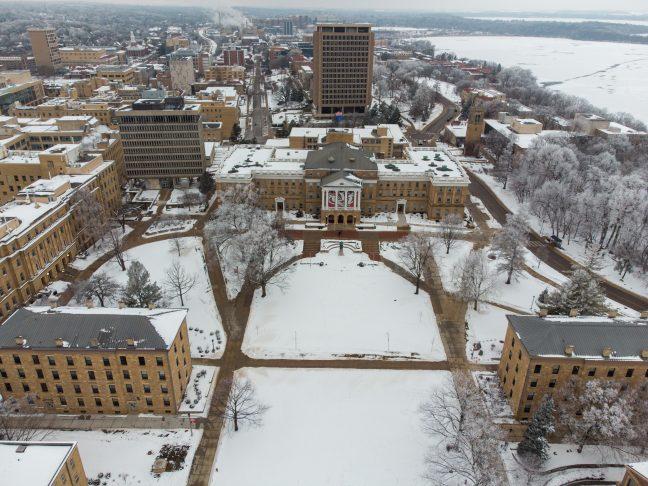The University of Wisconsin-Madison Campus Planning Committee, the group that drafts UW-Madison’s capital budget requests, met last week to rank budget priorities for the upcoming 2025-27 budget cycle.
The university’s priorities for 2025-27 incorporate foremost the budget goals for 2023-25 that did not make it past the Wisconsin Legislature’s Joint Finance Committee, the most notable being the new College of Engineering building.
New additions to the priority list include a $300 million residence hall which will add around 2,000 beds to University Housing’s capacity. According to the budget presentation given to the Campus Planning Committee Nov. 16, the current housing occupancy rate is at 114% of its capacity, with 25% of students in University Housing in overflow spaces, like converted dens. University Housing is no longer able to meet its goal of providing every first-year student with guaranteed housing, and greater space, like a new residence hall, is needed, according to the presentation.
RecWell announces Near East Campus Fields update, 2025 budget at SSFC meeting
Further, departments located within Mosse Humanities are working relocate out of the building and into new spaces. The Mosse Humanities building is beyond repair or renovation and it’s slated to be removed in 2029, according to the budget presentation.
According to University Committee Representative on the Campus Planning Committee Tom Purnell, the budget priority ranking begins with a dean submitting a request for certain buildings or a certain set of buildings. Those requests are then forwarded to campus Facilities Planning and Management.
Facilities Planning and Management’s role is to coordinate campus facility planning, manage design and construction, maintain and operate buildings and grounds, supply utility services, ensure health and safety and provide parking and transportation services, according to their website.
According to Purnell, the dean has to then provide answers to certain questions surrounding the proposed project and then the projects will be ranked accordingly.
Student Veterans of America pushes for community space in historic location
Answers to the questions go into the ranking system, and findings are then presented to the Campus Planning Committee. The committee then votes on the rankings and can move priorities up or down, Purnell said.
“Our design is just to do the ranking after hearing the presentations and make a decision about that,” Purnell said. “As a safeguard for our priorities here [UW-Madison].”
For funding building projects, there’s a greater dependence on gifts and grants and outside funding, Purnell said. This is because it allows the university to be self-sufficient and circumvent asking the legislature for funds, eliminating some of the state’s input and control over the projects.
The budget rankings will go to the Universities of Wisconsin Board of Regents, where the board will look at requests from all 13 UW schools and create a final ranking to send to the Wisconsin Legislature, if state funding for the projects is needed, Purnell said.














